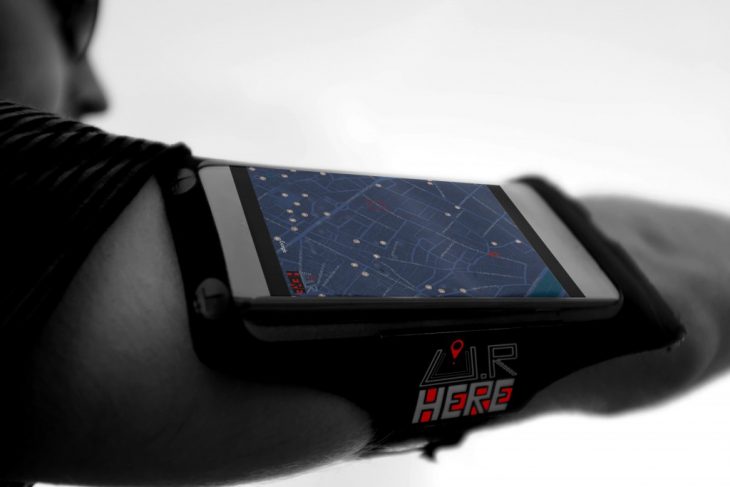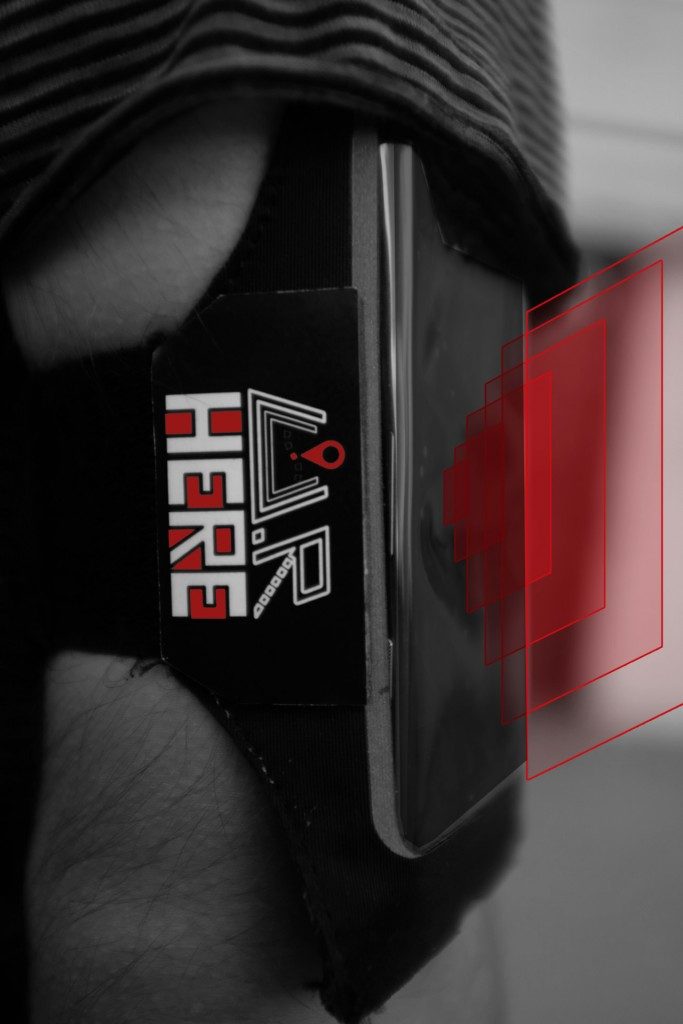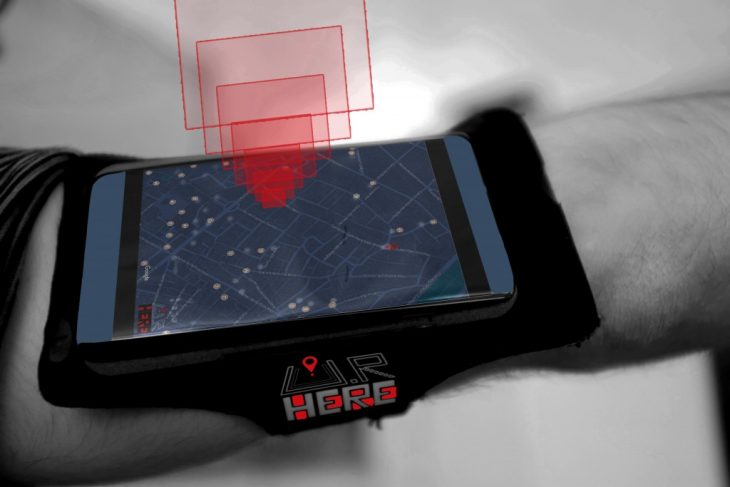The human mind is made up of various different sensors which help us understand and comprehend our surrounding environment. Apart from the basic 5 senses which we are always aware of there are multiple hidden and untapped senses. Sense of direction is one such ability which we as humans possess, but do not work towards enlightening.
Science has tried to explain how this sense of direction works but hasn’t yet found enough evidence to prove what has been said. Sense of direction/orientation begins with the sense of memory. The neural networks set up inside the human brain connect memory with maps to roughly give you an understanding of where you are and in which direction you have to go.
In the technological world that we live in no one is aware completely of their surroundings. All the focus is directed towards the black mirror which is our smartphones.

U.R-Here is a project which tries to solve this ever increasing problem of lack of being in the moment and being aware. The concept behind the project was to help people with lack of directional sense reach their destination without having to be consumed in their smartphone screens checking for directions. It is an android app deployed on the phone which constantly checks ones GPS location with respect to another stationary marked point, which is the destination, and in return gives haptic feedback depending on your proximity from the end destination. With the help of such an app the user is free to observe the world around them while they make their way towards the end goal. The user thus increases his visual memory which in turn helps build more neural networks in the brain like joining dots on a map therefore enlightening the sense of direction.


U.R-Here could work for multiple people trying to find a single destination in a camping or festival situation. This could later turn into a wearable product, such as a wristband, which the user could use to even sense proximity from other users thus giving it a more emotional element.
MAI-2018
Student – Shahram Randeria
Faculty – Luis Fraguada, Johnathan Minchin
Assistant – Irene Rodenas